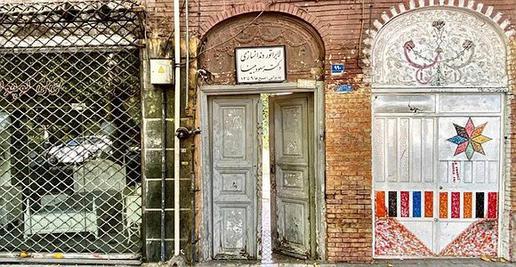There is an old mansion in Tehran with a neon sign saying “Dental Laboratory.” But more than a century ago the mansion once house a school – one of Iran’s first schools for girls. Before that time girls were not educated in schools in Iran’s traditional society.
The school, called Doushizgan, was opened in 1906 by Bibi Khanum Astarabadi. Attacks by religious and traditional groups, however, brought the work of the school to a halt. A woman named Touba Azmoudeh later opened a new school, the Namous Girls’ Primary School, during the reign of Reza Shah Pahlavi, in the mansion.
"The establishment of this school was one of the most important events in the lives of girls at that time," a women's rights activist living in Tehran told IranWire. "At that time, some scholars considered the education of girls to be against the Islamic law and said that girls who were noble and modest should sit in the corner of the house, and should obey her father, brother and later her husband."
Azmoudeh, who studied at home, was a pioneers of the women's movement in Iran. She also established the first girls' high school in Tehran, in 1928, when the time came for the first cohort of the Namous students to progress to secondary education. And in 1914 Azmoudeh increased the number of Namous branches in Tehran to six. She also organized literacy classes for illiterate adult women in the same schools.
"It seems the choice of the name of Namous [honor] for these schools was meant to reduce the suspicion felt by traditional society,” the scholar said. “In a way, they wanted to say that women and girls are the honor of this land."
Who was Touba Azmoudeh?
Touba Azmoudeh was born in 1878 to a middle class family in Tehran. Her father, Mirza Hassan Khan Sartip, was an educated army officer. She studied at home and after her marriage she continued to study Persian, Arabic and French with private teachers. At the age of 14, she married a military officer but they soon separated.
Azmoudeh recruited 3,474 female students to her schools – turning them into among the most important and well-equipped high schools in Iran and a center for raising modern women.
Touba Azmoudeh died in 1936 at the age of 58. The Namous schools were handed over to the Ministry of Culture in 1940 and was later renamed to “Shahnaz” schools.
This article was written by a citizen journalist in Tehran under a pseudonym.
Related coverage:
Women Denied Education as Discriminatory Policies Continue
visit the accountability section
In this section of Iran Wire, you can contact the officials and launch your campaign for various problems




























comments